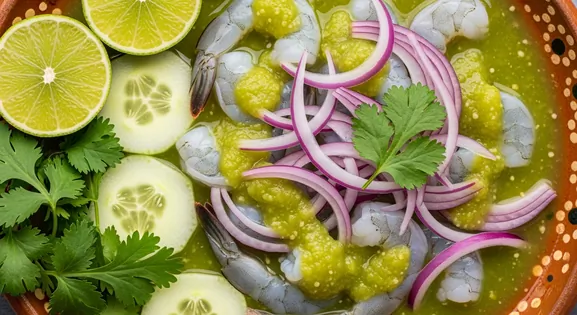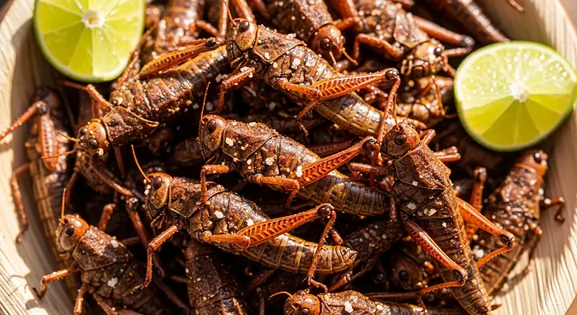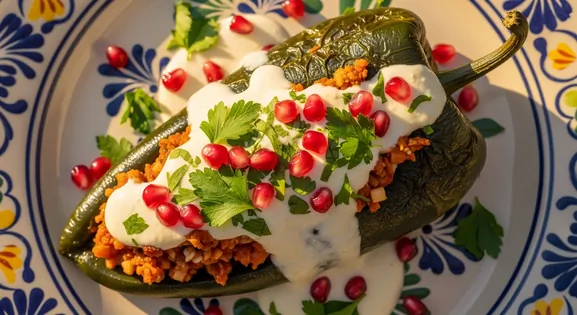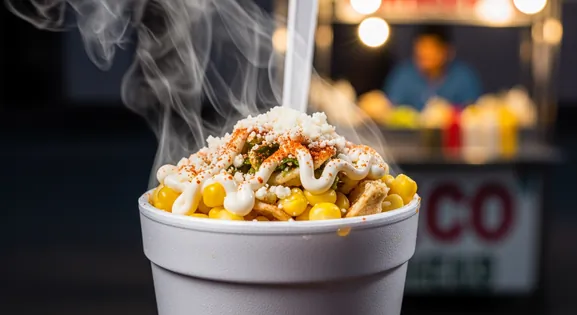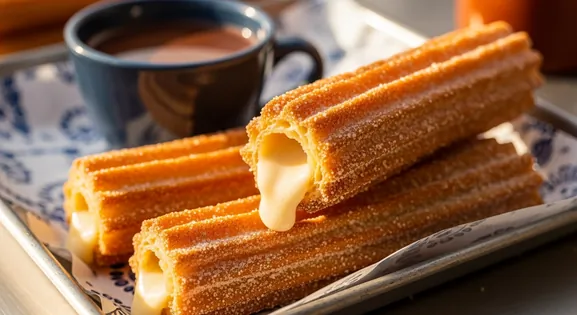Escamoles (Ant Larvae/Pupae) in Mexico City
Escamoles
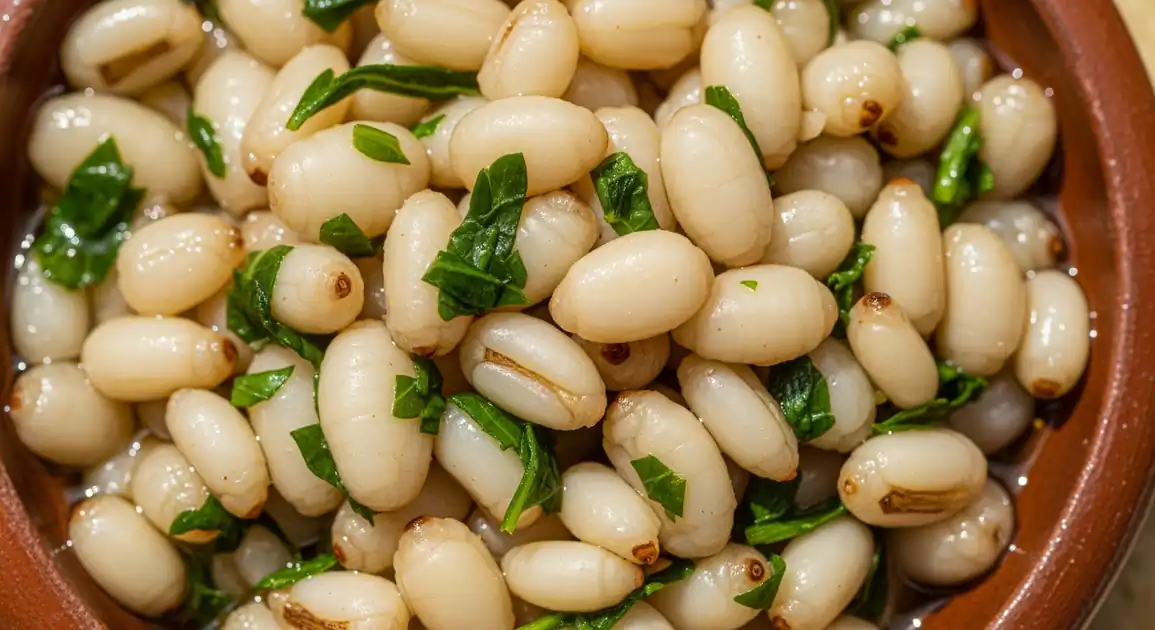
A Guide to the Local Experience
Stepping into Mexico City during spring, you're in for a rare culinary treat: escamoles. Often called "Mexican Caviar," these ant larvae offer a delicate, buttery, and slightly nutty flavor. It's a true taste of ancient Mexico, elevated to fine dining in this vibrant metropolis.
New to Escamoles (Ant Larvae/Pupae)? Learn all about its history in our complete guide.
A Cultural Deep Dive
Local Significance
In Mexico City, eating escamoles is often seen as a sophisticated culinary experience, connecting diners to ancient traditions and biodiversity. It's a highlight of seasonal menus.
Eating Customs
- Typically the first course of a special meal.
- Paired with light alcoholic beverages like tequila, mezcal, or dry white wine.
- Enjoyed slowly to appreciate the flavor and texture.
Local Styles of Escamoles (Ant Larvae/Pupae)
Escamoles with Bone Marrow (Tuétano)
A richer preparation sometimes found in modern restaurants, pairing sautéed escamoles with roasted bone marrow.
Mixed Insect Appetizer
Some restaurants offer platters featuring escamoles alongside other edible insects like chapulines (grasshoppers) or gusanos de maguey (maguey worms).
Unlocking the Secrets of a Great Meal
Escamoles are highly sought after during their short season (March-May). Make reservations well in advance at reputable restaurants, and confirm availability when booking.
While upscale restaurants in Polanco are reliable, don't overlook traditional eateries in Centro Histórico or Roma Norte that might offer excellent, authentic preparations.
Locals often enjoy escamoles with a crisp mezcal or a dry white wine, which complements their delicate flavor without overpowering it. Ask your server for recommendations.
Where to Find Escamoles (Ant Larvae/Pupae) in Mexico City
Polanco / Condesa / Roma
Areas with a high concentration of upscale and trendy restaurants, many of which feature seasonal Mexican ingredients like escamoles.
Lincoln Park (Polanco), Parque México (Condesa), Plaza Rio de Janeiro (Roma)
Lunch, Dinner (during season)
Centro Histórico
Home to long-standing traditional restaurants (e.g., El Cardenal, Hostería de Santo Domingo) that often serve escamoles seasonally.
Zócalo, Palacio de Bellas Artes
Lunch, Dinner (during season)
Mercado de San Juan
Famous market for exotic meats, insects, and produce. Escamoles can often be found here (raw or cooked) during the season. Requires careful selection.
Ernesto Pugibet Street
Morning/Mid-day (for market purchase, during season)
Vendor Tips
- Make reservations, especially at popular restaurants during peak season, and inquire about escamoles availability when booking.
- Don't hesitate to ask the staff about the origin (state like Hidalgo or Tlaxcala is common) and freshness.
- At Mercado de San Juan, compare vendors and look for the freshest appearance (bright, creamy white) if buying raw. Cook thoroughly.
A Traveler's Checklist
What to Look For
-
Reputable mid-to-high-end restaurants
Especially in areas like Polanco, Condesa, Roma. These establishments have better sourcing and refrigeration for this delicate, seasonal item.
-
Availability only during spring season (approx. Feb-May)
Authentic escamoles are seasonal. Year-round availability might indicate frozen or lower quality product.
-
Served freshly sautéed and hot
Should be cooked to order (often with butter, epazote, onion/garlic) and served immediately. Look for a plump, creamy white appearance.
-
Transparency about source
Good restaurants in Mexico City known for pre-Hispanic food are often proud of their source (e.g., Hidalgo, Tlaxcala) and happy to share.
What to avoid
-
Street vendors or informal markets (unless expert)
High risk of spoilage or improper handling. Stick to established restaurants for safety with escamoles in Mexico City.
-
Suspiciously low prices
Escamoles are labor-intensive to harvest and thus expensive. Very cheap offerings likely indicate poor quality, adulteration, or spoilage.
-
Greyish, mushy, or off-smelling escamoles
Clear signs of spoilage. Fresh escamoles have a delicate, slightly nutty aroma and firm but tender texture.
-
Served lukewarm or cold
This indicates they were not freshly cooked to order, which significantly increases the risk of spoilage and potential health issues.
Know Before You Go
Dietary Information
Important Note for Travelers: Your safety is our priority. Below are the common allergens associated with the traditional preparation of this dish. However, recipes and ingredients can vary significantly between establishments. Always confirm all ingredients directly with the food vendor before ordering, especially if you have a severe allergy.
Dietary Suitability
Price Guide
Budget Tips
- Prices reflect their status as a delicacy; expect costs at the higher end, especially in top restaurants.
- Sharing an appetizer portion is common.
- Lunch menus might occasionally offer slightly better pricing than dinner menus.
- Market purchase (raw) is cheaper but requires knowledge for selection and preparation.
Serving & Seasonality
Usually served sautéed with epazote in a small dish with corn tortillas on the side. Can also appear in tacos, mixed with guacamole, or occasionally in other preparations at inventive restaurants.Best Times to Enjoy
- Lunch: Widely offered as a popular starter during the main mealtime (2 PM - 5 PM).
- Dinner: Available as an appetizer in restaurants serving dinner (7 PM onwards).
Seasonal Availability
Peak season is March-April, available roughly late February to May/early June. Crucial to confirm.
Ordering Like a Local
When ordering escamoles in Mexico City, always confirm seasonal availability first, as they are a spring delicacy. Opt for preparations "al ajillo" (with garlic) or "a la mantequilla con epazote" (with butter and epazote) to truly appreciate their delicate flavor. Don't hesitate to ask your server about the origin, as many restaurants pride themselves on sourcing from specific regions like Hidalgo. While often served as an appetizer, consider sharing a portion to savor this rich, unique dish.
Getting the Most Out of Your Meal
Ordering Escamoles Safely in Mexico City
Learn essential tips for confidently trying 'Mexican Caviar' during its limited season in Mexico City, ensuring an authentic and safe culinary experience.
- Visit during the spring season (February to May) when fresh escamoles are available.
- Choose well-regarded restaurants known for traditional/pre-Hispanic cuisine in areas like Polanco, Roma, Condesa, or Centro Histórico.
- Ask the staff about the freshness and origin of the escamoles. Confirm they are 'frescos' (fresh), not frozen.
- Order them simply prepared (e.g., 'al ajillo', 'a la mantequilla con epazote') to appreciate the true flavor.
- Start with a small portion if trying for the first time, as they are rich.
Identifying Quality Escamoles on the Plate
Learn how to recognize the visual and aromatic signs of fresh, well-prepared escamoles, ensuring you enjoy this unique delicacy at its best.
- Look for a consistent creamy white to pale ivory color. Avoid any grey or dark spots.
- The individual larvae/pupae should be relatively distinct, resembling small grains of rice or corn kernels, not a uniform mush.
- They should appear plump and slightly glossy from being sautéed in butter or oil.
- The aroma should be delicate, buttery, and slightly nutty, perhaps with hints of epazote. Avoid any sour or 'off' smells.
- Texture should be soft and pop gently in the mouth, similar to firm cottage cheese or caviar.
Our Commitment to Quality
At Tasteplorers, our mission is to provide the most accurate and useful travel information in the world. To achieve this, all content on this site is created through our unique editorial framework. We utilize leading AI research tools, guided by our proprietary prompts, and a multi-stage validation process. This entire system is overseen by our editorial team to ensure everything we publish meets our high standards for accuracy, cultural nuance, and practical value for travelers.
Learn more about our Editorial Process and our Mission.
Explore regions
Europe
Discover Europe's diverse culinary landscape, from Mediterranean flavors to hearty Alpine fare. Learn to navigate markets, decode menus, and eat like a local.
Latin America & Caribbean
Discover the vibrant cuisines of Latin America & the Caribbean. Our expert guide covers everything from Mexican street food to Peruvian ceviche and market tips.
Oceania
Explore Oceania's diverse food scene. Learn about Polynesian earth ovens, Fijian feasts, and the vibrant café culture of Australia and New Zealand.
Southeast Asia
Explore Southeast Asia's diverse food cultures from Thailand to Vietnam. Get expert tips on navigating spice levels, choosing quality vendors, and understanding the rich traditions of the region.
